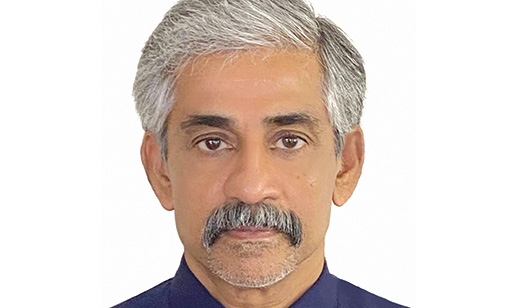Addendum
In at the deep end for new Association of Asia Pacific Airlines boss
May 1st 2020
Spare a thought for Subhas Menon. When the 35-year veteran from Singapore Airlines (SIA) accepted the director generalship of the Association of Asia Pacific Airlines (AAPA) he was not to know he would be taking charge in the midst of the worst crisis in aviation’s history. Read More »
He is not even able to confront the challenges of his new job from the airline association’s Kuala Lumpur headquarters. As a foreigner, Singaporean Menon had to leave Malaysia and return to Singapore where he is now working from home.
 |
“It has been a baptism of fire. Nevertheless, I think sometimes you might as well jump in the deep end,” he told Orient Aviation last month. “I would not say a crisis was good, but a crisis focuses the mind. Everybody is acting in concert to survive it. The learning curve is very sharp. If we can get through this, we will come out of it in better shape.”
Menon is certainly well qualified to lead the AAPA at this time. A graduate of the National University of Singapore, with a bachelor of social science (honours) in sociology, he has worked in a wide spectrum of roles at SIA, including international and government relations, marketing, product development, logistics, country and regional management as well as a spell as chief executive of SilkAir.
Menon said no one is talking about failure, only about survival of the crisis. “What is unique about COVID-19 is the nature of the spread and its duration are unknown. At the moment, we have to operate on the premise it is going to take a bit of time to abate. And even if it does, the recovery will be sporadic and slow,” he said.
The priority for airlines is to earn as much income as possible and conserve cash, Menon said. “They are operating some air cargo flights. They are doing some repatriation flights to bring home stranded passengers. It’s not much, but every little bit helps,” he said.
“They have relief from governments on taxes, fees and charges, are in discussions with manufacturers about deferrals and delays and are in talks with their banks and their governments for lifelines. Airlines are very busy in survival mode.”
The AAPA has strongly criticized governments’ travel restrictions, but Menon understood the reasoning behind them. “Travel restrictions were imposed because governments were nervous about imported cases, which were on the rise in most countries, so they put the travel restrictions in place,” he said.
“Hopefully, they will buy time for governments to make sure their public health systems and facilities are up to scratch in case there is another spike in the virus.”
Surprisingly, Menon agreed governments have facilitated aircraft operations, provided relief from slot use rules for airlines and exempted them from licensing certification and regulations.
“They have done this in a timely manner. Of course, we want to see all these things being established with ICAO (International Civil Aviation Organization) so there is visibility and transparency for airlines to plan their operations. But otherwise, they have been very helpful,” he said.
One challenge airlines are likely to face during recovery will be new regulations, possibly including leaving an empty seat between passengers. Menon is not sure if this is based on scientific advice because people are not contracting the virus on aircraft.
“They are contracting the virus elsewhere. Airlines are just taking them to their destinations. Mitigation measures on which governments are going to agree should be upstream in the passenger travel process. In other words, before they board the plane. That is crucial,” he said.
“Secondly, the measures must be based on medical advice. Whatever mitigation measures they decide must be scientifically based and on the advice of public health professionals like the World Health Organisation (WHO).
“Thirdly, they must be harmonized, coordinated and coherent. They must make sense. They should reassure travellers their journeys are safeguarded. Fourthly, they must be practical and easy to implement, be user friendly and preferably available on mobile devices so the passenger is not encumbered.”